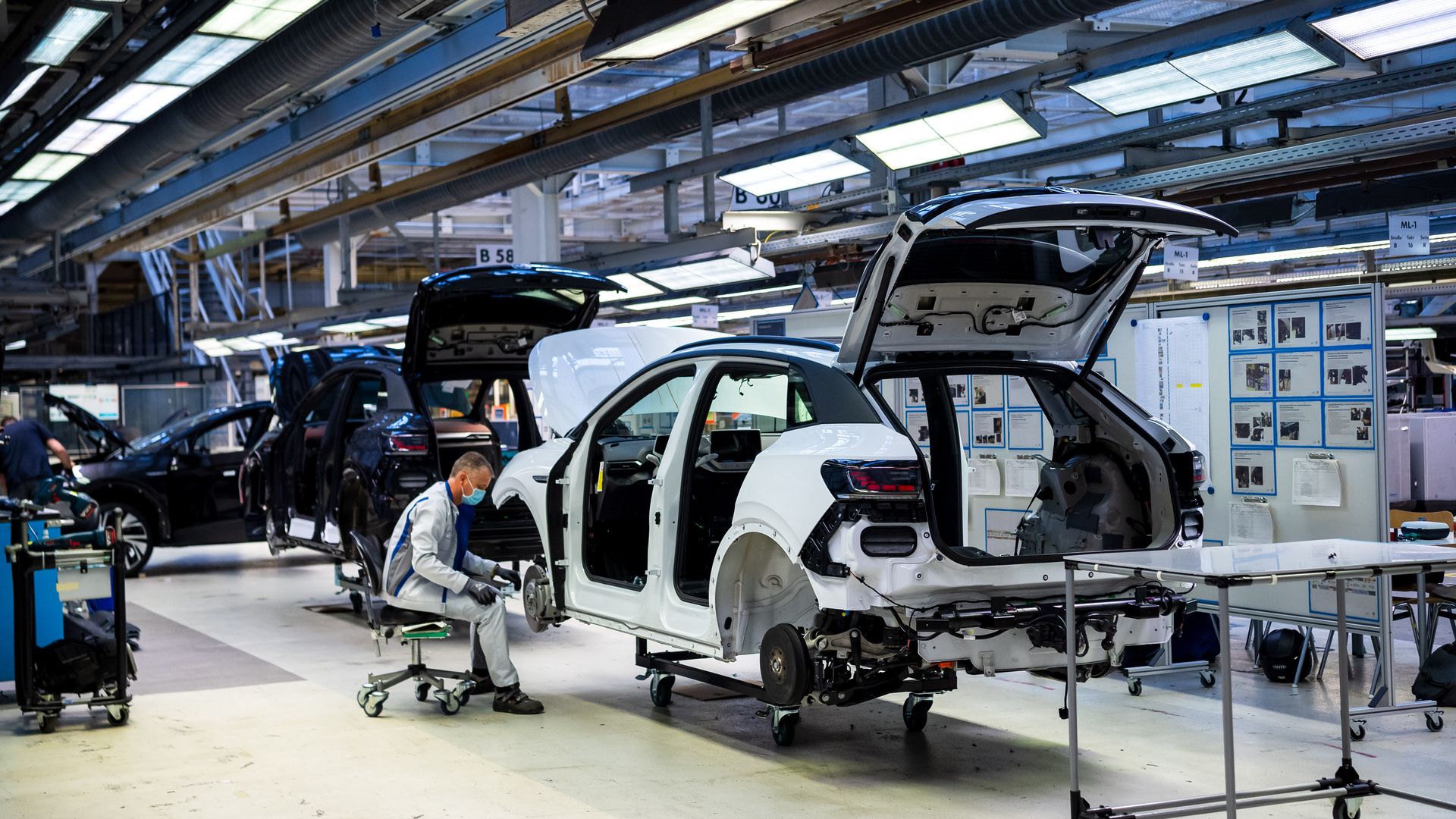Nov 10, 2021 - World
COP26 pledges turn to electric vehicles
Add Axios as your preferred source to
see more of our stories on Google.

A Volkswagen production line for electric cars in Emden, Germany, on Nov. 9. Photo: Sina Schuldt/picture alliance via Getty Images
